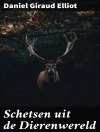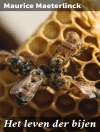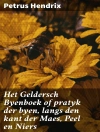In ‘The Life of the Bee, ‘ Maurice Maeterlinck blends poetic prose with scientific observation to explore the intricate world of bees. This work delves into their complex social structures, behaviors, and the profound interconnections between bees and the environment. Employing a lyrical style imbued with symbolism, Maeterlinck elevates the study of these creatures beyond mere entomology, positioning them as metaphors for human existence and community. The text, published during the flourishing of naturalist literature in the early 20th century, reflects a growing fascination with the natural world and humanity’s relationship to it, aligning with the broader Symbolist movement in which Maeterlinck was deeply involved. Maurice Maeterlinck, a Belgian playwright and essayist and a Nobel Prize laureate, harnesses his rich philosophical insights and affinity for nature in this compelling narrative. His early life and exposure to the rhythms of the natural world influenced his profound appreciation for the subtleties of life, which resonates throughout this book. Maeterlinck’s experiences and reflections on the mysteries of existence reach a delightful synthesis in his portrayal of the bee as a lens through which to examine broader themes of life, mortality, and interconnectedness. ‘The Life of the Bee’ is a captivating read for anyone intrigued by the wonders of nature and the deeper questions of life. Whether you are a lover of literature or a curious naturalist, this book invites readers to ponder the significance of the smallest creatures in shaping our understanding of existence. Maeterlinck’s eloquent narrative and philosophical reflections make it an essential addition to any literary or ecological collection.
Про автора
Maurice Maeterlinck (1862-1949) was a Belgian playwright, poet, and essayist who penned the enthralling text ‘The Life of the Bee’ in 1901. He was born in Ghent, Belgium, into a wealthy, French-speaking family. Educated at a Jesuit college, Maeterlinck initially began practicing law but soon dedicated his life to literature. He is chiefly remembered for his plays, including ‘Pelléas et Mélisande’ which influenced the Symbolist movement in the late 19th century. His profound fascination with mysticism and the meaning of life informed his work, which often dwelled on themes of fate, human nature, and the unseen forces that guide our lives. Maeterlinck’s literary style combined rich symbolism with elements of fantasy, earning him the Nobel Prize for Literature in 1911 for his wide-ranging influence on the modern theater. ‘The Life of the Bee’ is not only an exemplary work of early entomological writing but also an allegorical exploration of human society. With profound philosophical insights, this book offers a meditation on the collective and the individual within nature’s tapestry. Maeterlinck’s contribution to literature extends to over 20 plays and numerous poems and essays—all of which emphasize a quest for understanding the depth and mystery of the human condition.












